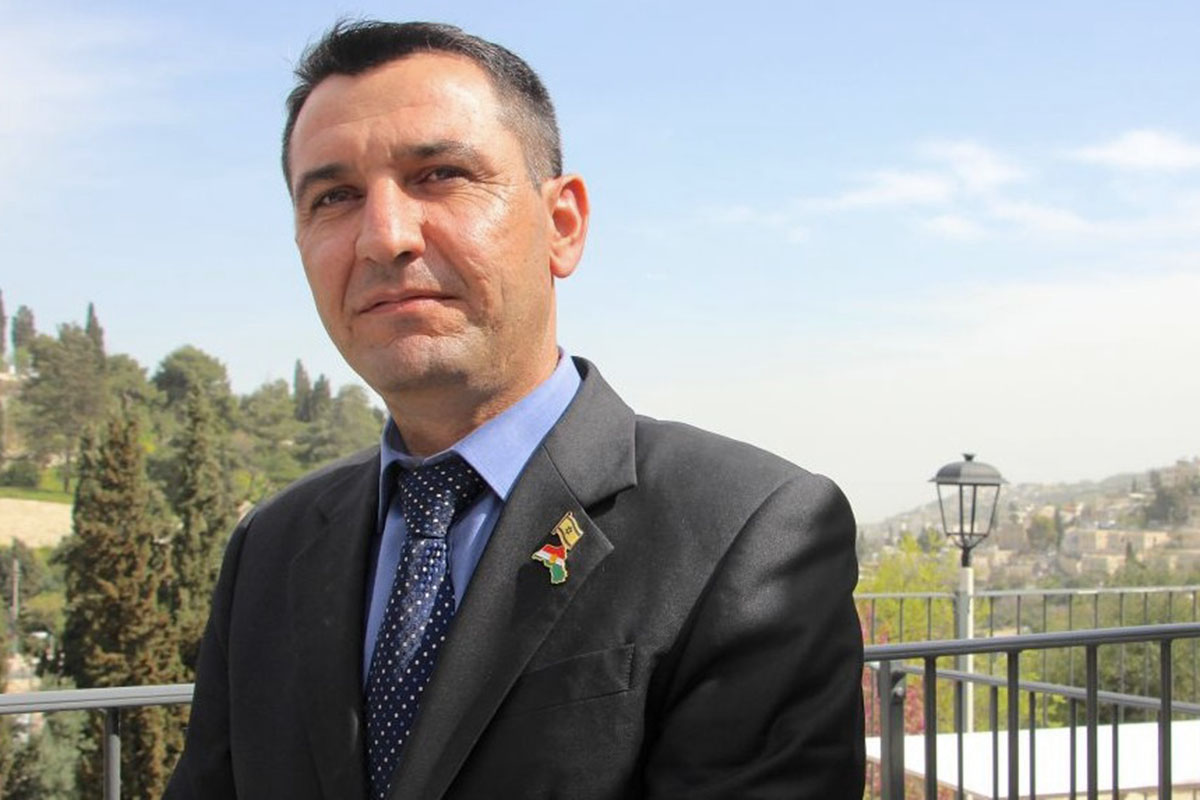Iraqi Kurdistan sees a Jewish revival, thanks to the Islamic State
The first Jewish representative in Kurdistan’s government has helped lead a new flowering of Jewish life in northern Iraq, to counter the jihadis' horrific sectarianism.
In the streets of Irbil, the capital of Iraqi Kurdistan, today, a small group of local Jews wear their kippahs proudly. It is a sight only the city’s elderly can recall having seen before, and espying this long-forgotten religious headgear has brought a few to tears.
Following the declaration of the State of Israel in 1948, anti-Jewish violence forced the 2,500-year-old Iraqi Jewish community out of its ancient homeland and back to its even more ancient homeland. By the end of 1952, most of the 150,000 descendants of the Israelites exiled to Babylon by Nebuchadnezzar had emigrated to the newly founded Jewish state. Today, following persecution in the 1960-70s under the Ba’ath party, which forced Jews to carry yellow identity cards, Iraq is nearly judenrein.
But Sherzad Mamsani, 39, is now leading the charge to preserve and revive Jewish culture in his native Iraqi Kurdistan, sometimes at great personal risk.
He started his work in 1997, penning a book about his region’s ties with Israel. This earned him the ire of local radical Islamists, who carried out a bombing against him that took his right hand. Mamsani, who volunteered last year to fight in the peshmerga militia against the Islamic State terror group, would not be cowed. And in October 2015, within the framework of a law to protect minorities that he helped pass, he was given an official appointment in the Kurdistan Regional Government (KRG) as the director of Kurdish Jewish Affairs.
There are only a handful of Iraqi Kurds who claim Jewish descent. While Sherzad says that his mother is Jewish, the great majority of the small community can only point to a grandparent somewhere in their family tree. There are no synagogues operating there today, either. The movement is more about identity, restoring a missing part of the cultural mosaic in Kurdistan and righting a historical injustice.
To try and quantify the number Jews in Kurdistan would also require this small community and the KRG to define who is Jewish, and neither is willing to walk down that mine-strewn path.
But in a country torn by horrific sectarianism, there is a popular movement to foster coexistence and defend minorities, however small they may be. This movement includes the Jewish community and is also led by them. It could also impact the nearly 200,000 Kurdish Jews who live in Israel, as it grants them the right to claim reparations.
The Times of Israel caught up with the soft-spoken Mamsani in Jerusalem. He was participating in a conference organized by the Springs of Hope Foundation that focused on the persecution of minority groups in places controlled by IS, especially the enslavement of Yazidi women. Forgoing his lunch break, he spoke in Iraqi Arabic about his work reviving the once-great Iraqi Jewish heritage.
Source: The Times of Israel

